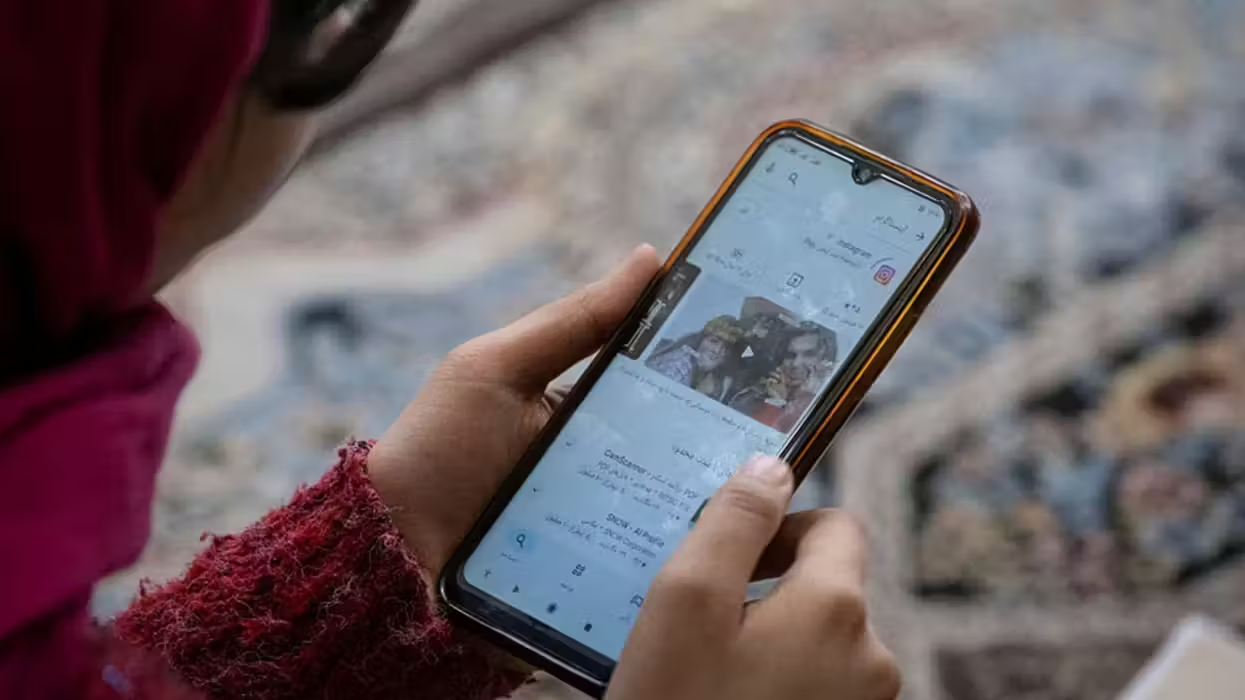
© 2025 Blaze Media LLC. All rights reserved.
Listen to the Hilarious Conversation That Ensues When a Reporter Tries to Get a Suspected Robo-Caller to Admit She's a Robot
December 16, 2013
"If you could say the words 'I'm not a robot,' it would really mean a lot to me."
Instead of hanging up on a suspected robot telemarketer wanting to talk about health insurance, Time's Washington Bureau Chief Michael Scherer decided to engage her and question her on her robot status. But the telemarketer, who identified herself as Samantha West, would have none of these accusations, leading to a hilarious conversation and several questions as to her true identity.
Time reported that it conducted several tests and follow- up calls that it believes shows the caller was a robot:
When Scherer asked point blank if she was a real person, or a computer-operated robot voice, she replied enthusiastically that she was real, with a charming laugh. But then she failed several other tests. When asked “What vegetable is found in tomato soup?” she said she did not understand the question. When asked multiple times what day of the week it was yesterday, she complained repeatedly of a bad connection.Over the course of the next hour, several TIME reporters called her back, working to uncover the mystery of her bona fides. Her name, she said, was Samantha West, and she was definitely a robot, given the pitch perfect repetition of her answers. Her goal was to ask a series of questions about health coverage—”Are you on Medicare?” etc.—and then transfer the potential customer to a real person, who could close the sale.
Listen to Samantha West's response when she's asked if she's a robot:
Here's another recording of a conversation:
All in all, the person or robot on the other end of the call never would say "I'm not a robot."
One reporter prompted, "if you could say the words 'I'm not a robot,' it would really mean a lot to me."
She would instead answer with a comment like "I'm a real person" and laugh.
A Time reporter who answered the caller's questions without challenging if she was real or not, was transferred to someone they officially felt was a human on the line. Once given the Ft. Lauderdale, Fla., company's website (premierhealthagency.com), a reporter called the company directly and asked about use of robots to make calls.
“We don’t use robot calls, sir,” a person who answered the company's phone said before hanging up, according to Time.
Time published the phone number at which Samantha West could be reached and noted that several online discussions about the caller had already taken place. A complaint was made in Sept. 2012 on the Ripoff Report, labeling the company a "scam."
Taking the idea that the caller was a robot a step further, The Atlantic tried to figure out how one would acquire such realistic sounding and relatively responsive technology.
The Atlantic investigated various technologies and options that might have this capability and found that most are not sophisticated enough to do what Samantha West, if she was a robot, was doing.
So, The Atlantic's Alexis Madrigal wrote this hypothesis as to what West could be:
Samantha West is a human being who understands English but who is responding with a soundboard of different pre-recorded messages. So a human parses the English being spoken and plays a message from Samantha West. It is [interactive voice response], but the semantic intelligence is being provided by a human. You could call it a cyborg system. Or perhaps an automaton in that 18th-century sense.If you're reading this, you must be wondering: WHY?!?!
Well, while Americans accept customer service and technical help from people with non-American accents, they do not take well to telemarketing calls from non-Americans. The response rates for outbound marketing via call center are apparently abysmal.
So, Samantha West, could be the rather strange solution to this set of circumstances and technical capabilities. Perhaps a salesperson like this doesn't have to say too many things to figure out if someone might be interested in buying insurance.
Shortly after its story last week, Time wrote in an update that the phone number was no longer functional and the company pushing the health insurance -- Premier Health Plans Inc. -- no longer had a working website.
Let us know what you think of the telemarketer by taking our poll:
(H/T: Gawker)
--
[related]
Want to leave a tip?
We answer to you. Help keep our content free of advertisers and big tech censorship by leaving a tip today.
Want to join the conversation?
Already a subscriber?
more stories
Sign up for the Blaze newsletter
By signing up, you agree to our Privacy Policy and Terms of Use, and agree to receive content that may sometimes include advertisements. You may opt out at any time.
Related Content
© 2025 Blaze Media LLC. All rights reserved.
Get the stories that matter most delivered directly to your inbox.
By signing up, you agree to our Privacy Policy and Terms of Use, and agree to receive content that may sometimes include advertisements. You may opt out at any time.






